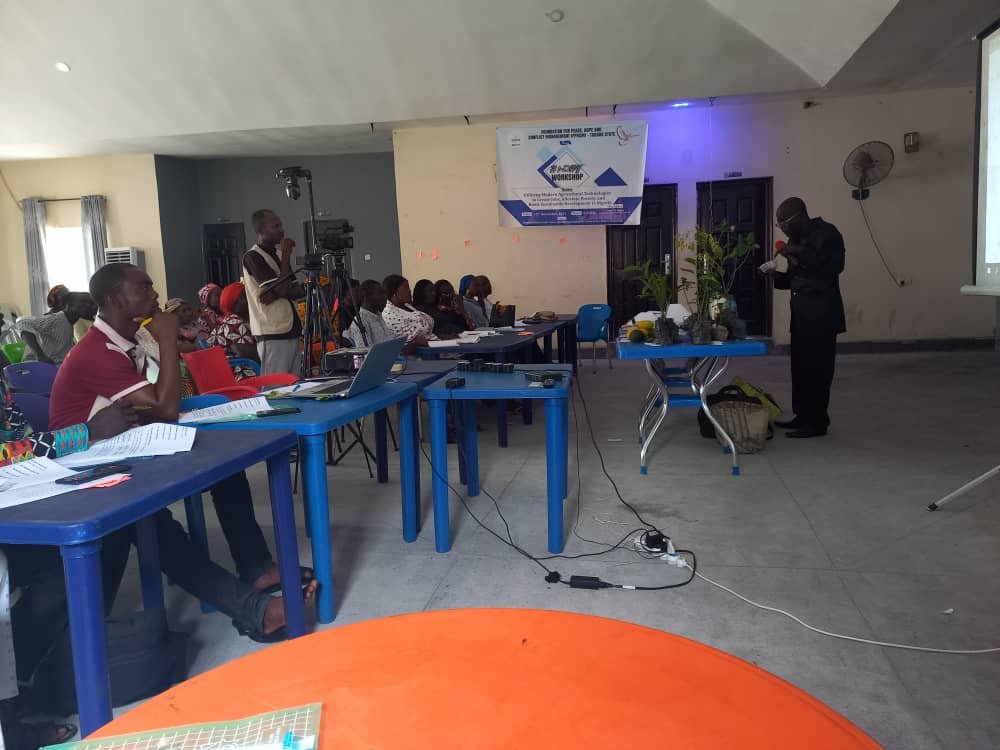The project “establishment of inter-religious and intercultural committee fostering social cohesion by building bridges between diverse religious, ethnic, political and regional communities” was funded by the King Abdullah bin Abdulaziz International Centre for Interreligious and Intercultural Dialogue (KAICIID) whose mandate is in conformity with the commitment of FPHCM to support the Federal Government of Nigeria to achieve the Sustainable Development Goals (SDGs) 4, 5, 16 and 17 respectively.
In Taraba, the continuous violent conflict in the southern part is precipitated by multi-
dimensional economic, religious, ethnic, and political factors. The act of resolving this conflict through dialogue rather than violence, is an essential skill in order to reach a lasting peace at the community level, where the impact of the conflict is more devastating with monumental loss of human and material resources. In order to achieve the objectives, the project utilized a combination of interventions by raising awareness through sensitization and advocacy using social and behavior change communication (SBCC), community mobilization and capacity building in the communities that border between Benue and Taraba States particularly; Wukari, Ukum and Takum Local Government Areas.
The program applied a multisectoral approach leveraging on the support of Most Rev. Dr. Charles M. Hammawa, the Catholic Bishop of Jalingo Diocese, HRH (Arc.) Orkaa Kaave (KSJI), the Ter Ukum and Chairman Ukum Traditional Council, Sankera Benue State, HRM (Dr.) Shekarau Angyu, Masa-Ibi Kuvyon II, the Aku Uka and Chairman Council of Chiefs, Taraba State represented by Hakimi Manu Jida David Danladi Maiyaki, the Uko Bede of Bete, Takum, Dr. Edward L. Mikeri, Local Government Chairmen of Wukari, Ukum and Takum, Christian Association of Nigeria (CAN), Muslim Council of Nigeria (MCN), the Fulani group, Security Agencies (Department of State Security, formal and informal security agencies. During the project period, about 400 persons participated in the activities drawn by the FPHCM in the three different project locations. However, there exists a huge need for a continuous follow-up, sustainability, and up scaling of the current project, and possibly diversification into complementary projects like livelihoods, shelter, WASH, education, protection, environmental and resilience projects within the locality, across other regions and the neighboring state.
